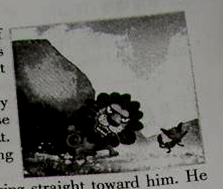题目内容
Dear Jenny,
Please take these things to your brother: his math book, baseball, notebook, CDs, and video tape. The math book is on the dresser. The baseball is under the bed. The notebook is on the bed. The CDs are in the drawer. The video tape is on the table. Thanks!
Mom
小题1:Where is the math book?
小题2:What’s under the bed?
小题3:The math book is .
小题4:The are in the drawer.
小题5:The video tape is .
Please take these things to your brother: his math book, baseball, notebook, CDs, and video tape. The math book is on the dresser. The baseball is under the bed. The notebook is on the bed. The CDs are in the drawer. The video tape is on the table. Thanks!
Mom
小题1:Where is the math book?
| A.It’s on the dresser. | B.It’s under the bed. |
| C.It’s on the bed. | D.It’s in the drawer. |
| A.The math book. | B.The baseball. |
| C.The notebook. | D.The CDs. |
| A.Jenny’s | B.Mom’s |
| C.Jenny’s brother’s | D.Tom’s |
| A.rulers | B.books |
| C.CDs | D.pens |
| A.on the table | B.under the table |
| C.under the bed | D.on the bed |
小题1:A
小题2:B
小题3:C
小题4:C
小题5:A
小题1:细节理解题,根据文中语句“The math book is on the dresser.”理解可知。
小题2:细节理解题,根据文中语句“The baseball is under the bed.”理解可知。
小题3:理解归纳题,根据文中语句“Dear Jenny,
Please take these things to your brother: his math book,”理解可知。
小题4:细节理解题,根据文中语句“The CDs are in the drawer.”理解可知。
小题5:细节理解题,根据文中语句“The video tape is on the table.”理解可知。

练习册系列答案
 名校课堂系列答案
名校课堂系列答案
相关题目
